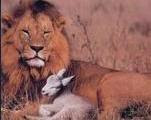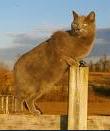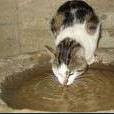Rasmussen Reports
64% of GOP Voters See Divide Between Public and Government As Biggest Since the American Revolution
A new Rasmussen Reports national telephone survey finds that 64% of Likely GOP Primary Voters believe the gap between Americans who want to govern themselves and politicians who want to rule over them is now as big as it was between the American Colonies and Great Britain in the 18th century. Just 16% disagree with this sentiment, and 20% aren’t sure.
But then 84% of Republican voters trust the judgment of the American people more than that of the nation's political leaders when it comes to important issues. Only four percent (4%) trust the political leaders more. Twelve percent (12%) are undecided. Among all voters, 76% trust the people more than the politicians.
Eighty-seven percent (87%) say the federal government has become a special interest group that looks out primarily for its own interests. Just six percent (6%) don’t share that view.
Two-out-of-three GOP voters (67%) think big business and the government often work together in ways that hurt consumers and investors. Thirteen percent (13%) disagree. Twenty percent (20%) are not sure.
“Throughout American history, voters tend to be a few decades ahead of the political leadership,” noted Scott Rasmussen, president of Rasmussen Reports. “Voters gradually adapt to changes in the real world while politicians become defenders of the status quo. That creates a gap that is closed only when the political elites eventually concede.” Rasmussen wrote of this dynamic in his book In Search of Self-Governance.
The survey of 1,000 Likely GOP Primary Voters was conducted on April 26, 2011 by Rasmussen Reports. Likely GOP Primary Voters include both Republicans and unaffiliated voters likely to vote in a GOP Primary. The margin of sampling error is +/- 3 percentage points with a 95% level of confidence. Field work for all Rasmussen Reports surveys is conducted by Pulse Opinion Research, LLC. See methodology.
Forty-three percent (43%) of the likely primary voters consider themselves to be members of the Tea Party movement; 41% are not, while another 16% aren’t sure. Among all voters, 22% are Tea Party members.
Voters ages 40 to 64 are the most likely to feel that the gap between the people and those in power is the biggest since the 1770s. Seventy-eight percent (78%) of Tea Party members feel that way along with 54% of non-members.
Evangelical Christians are more likely to share that view than those of other faiths.
But sizable majorities of GOP voters across all demographic categories agree that they trust the judgment of the public more than that of the country’s political leaders and that government has become a special interest group of its own.
Just 28% of all voters now believe the federal government has the consent of the governed.
Subscribe to:
Post Comments (Atom)


























































No comments:
Post a Comment